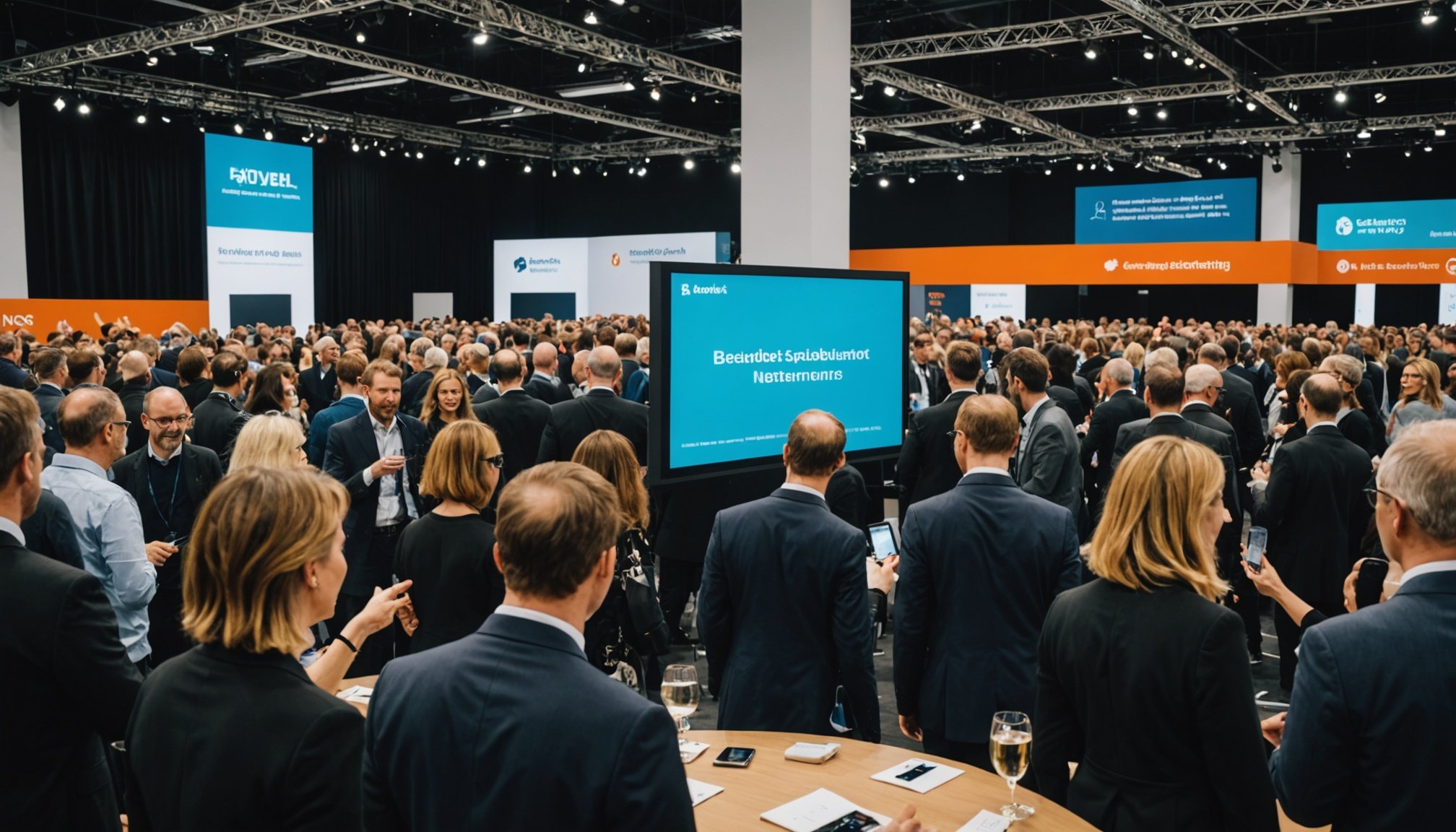Understanding Attendee Interaction in Event Planning
In the realm of event planning, fostering attendee engagement is pivotal. The level of interaction among attendees can significantly enhance the overall experience, as it encourages participation and creates memorable moments. Effective event planning strategies involve understanding the dynamics of interaction, which can lead to more successful and impactful events.
To measure interaction effectiveness, key metrics and tools must be utilized. Two primary metrics include participation rate and feedback scores, which provide insights into attendees’ involvement and satisfaction. Surveys and feedback forms post-event are crucial tools that help planners gauge this effectiveness. Additionally, analysing social media activity around the event provides real-time data on attendee sentiments and engagement levels.
Topic to read : Unlocking travel insights: a comprehensive ai-driven guide for uk travel agencies to predict trends and enhance customer experience
Technology plays a critical role in facilitating engagement. Mobile apps, for instance, offer interactive maps, schedules, and live polling features that encourage interaction. Virtual reality can immerse attendees, offering unique ways to explore exhibition spaces or participate in workshops. Using these tools not only enhances engagement but also aids in detailed interaction analysis, allowing planners to tailor future events to better meet attendee needs.
In summary, understanding and enhancing attendee interaction is vital for a successful event, with metrics and technology being indispensable components.
Topic to read : Building a comprehensive cybersecurity blueprint for uk fintech startups
Leveraging AI Technologies for Enhanced Engagement
AI technologies are revolutionising the event industry, providing planners with a variety of engagement tools. These tools are designed to enhance attendee experiences through personalisation and automation. Various AI-powered event technology solutions are available to aid in crafting memorable events.
Innovative AI Tools for Event Planners
Event planners can utilise AI technologies such as chatbots, facial recognition, and recommendation engines. Chatbots, for instance, deliver prompt responses to attendee inquiries, improving accessibility and interaction. Meanwhile, facial recognition software allows seamless check-ins, lending to a smooth event experience.
Case Studies: Successful AI Implementations in UK Events
Several UK events have successfully integrated AI technologies, setting a precedent for future implementations. At tech conferences, AI-driven engagement tools have categorised attendee interest areas to personalise session recommendations. Such implementations maximise engagement, evidenced by increased interaction rates.
Personalising Attendee Experiences
AI technologies elevate event engagement by tailoring experiences to individual preferences. Recommendation algorithms analyse attendee data, curating bespoke content and networking opportunities. This level of personalisation fosters a deeper connection, encouraging attendees to become more involved in event activities.
When strategically applied, event technology solutions powered by AI enable planners to craft engaging, personalised event experiences.
Practical Strategies for Implementing AI in Events
Artificial Intelligence (AI) can significantly enhance event planning and execution. However, implementing it requires a thoughtful approach. Here, we’ll discuss essential strategies for successful AI implementation.
Assessing Your Event Needs
Before integrating AI, it’s crucial to assess your event’s unique requirements. Consider factors like audience size and event type, as these will influence which AI tools are most suitable. Understanding your event goals ensures you select technology that aligns with your objectives and enhances the overall experience.
Selecting the Right AI Tools
Choosing the right AI tools that match your event needs is fundamental. Assess available tools by their features and compatibility with your existing systems. Consider whether they offer capabilities such as real-time data analysis or personalised attendee experiences. Research and comparisons enable informed decisions, ensuring efficient integration.
Training Staff and Stakeholders
Implementing AI isn’t just about the right technology; it involves skilled personnel. Ensure staff and stakeholders are adequately trained to use AI tools. Training will cover new processes, troubleshooting, and leveraging AI capabilities. Effective training fosters successful adoption, maximising the benefits and helping your team feel confident and empowered.
Measuring the Impact of AI on Attendee Interaction
In today’s event landscape, understanding attendee interaction is pivotal. Various techniques in data analytics are employed for impact assessment. Post-event, collecting and analyzing engagement data helps determine the effectiveness of AI initiatives. This process typically involves tracking interactions through AI tools such as chatbots and virtual assistants.
Event organizers rely on performance metrics to assess the depth of engagement. Key performance indicators (KPIs) provide a robust framework for this assessment. Common KPIs include the number of interactions per attendee, time spent engaging with AI tools, and the quality of interaction as reported by attendees. These metrics give insights into how well AI technology enhances attendee experiences.
Feedback from participants plays an invaluable role in refining future events. Utilizing feedback gathered through surveys and direct reports, organizers can make targeted improvements. This feedback loop is crucial for the continuous enhancement of AI applications, allowing for tailored solutions that meet specific attendee needs and expectations.
By integrating data analytics with real-time feedback, event planners can consistently enhance their approach, ensuring AI tools effectively facilitate rich interaction experiences and lead to successful events.
Future Trends in AI and Event Planning
The future of events is poised for transformation as emerging technologies continue to evolve. In particular, predictions on AI advancements indicate significant potential for enhancements in event planning and attendee interactions. AI systems are becoming increasingly sophisticated, allowing for more personalized and seamless experiences. This ongoing development promises a future where AI can intelligently predict attendee preferences, manage logistics, and even enhance safety protocols.
AI and Attendee Interaction
Exploring how AI can shape attendee interaction is crucial to understanding upcoming industry trends. Increased usage of AI tools can create more engaging and interactive experiences, offering real-time feedback, adaptive content delivery, and even virtual assistance. As event planners strive to exceed attendee expectations, integrating AI could streamline processes and enhance satisfaction levels.
Preparing for Change
As the industry trends shift, preparing for changes in both technology integration and attendee expectations becomes essential. Event organisers will need to embrace these emerging technologies, ensuring they possess the necessary skills and knowledge. This proactive approach not only supports the harmonious blending of traditional and digital elements but also fosters innovative solutions that cater to the dynamic demands of future events. Embracing change and adaptability will be key components in navigating these imminent advancements.






